Final Notes on the 2023/24 LA Phil Seaso
/By Truman C. Wang
5/2/2024
The LA Phil’s Saturday matinee concert on April 13 was an earthshaking affair, not only because of the Organ Symphony of Saint-Saëns, but also the lesser-known complete Mother Goose Suite by Ravel that garnered waves of applause. It was a concert that showcased the various sections of the orchestra and their principal players (similar to another popular Saint-Saëns work, Carnival of the Animals). The first to shine was concertmaster Martin Chalifour in Ravel’s Tzigane, full of French charm mixed in with Hungarian fire and virtuosity. The four fairytales in the Mother Goose Suite (Ma mère l'Oye) were memorably strung together with brilliant solo turns by the harp, flute and oboe, in a brilliantly colorful reading by French conductor Louis Langrée. During the curtain call, he picked up the music score and applauded it, merci beaucoup Monsieur Ravel. The eagerly awaited Organ Symphony in the second half of the concert did not disappoint. As many times as I have heard this work, the mighty power and scale of the organ part never fail to shock and awe. LA Phil’s keyboardist Joanne Pierce Martin played the organ (and the celesta in the Mother Goose Suite) and she was superb, breathing life into the 6,134 pipes of the Walt Disney Hall concert organ. I moved upstairs from my usual perch in the orchestra. The organ sounded lovely up there; the deep bass pedals in poco adagio flooded the hall like a warm blanket in a cold rainy day; the famous maestoso-allegro finale knocked the wind out of the listener with its sheer force and magnificence.
These days, a classical concert would not be complete without an obligatory work of new music. On this occasion, it’s a slow-moving, 13-minute musical cumulus cloud of rhythm, harmony and melody, titled Assemble, by African-American composer Jonathan Bailey Holland. The work’s hazy colors and somewhat impressionistic texture fit in nicely with the French theme of the program.
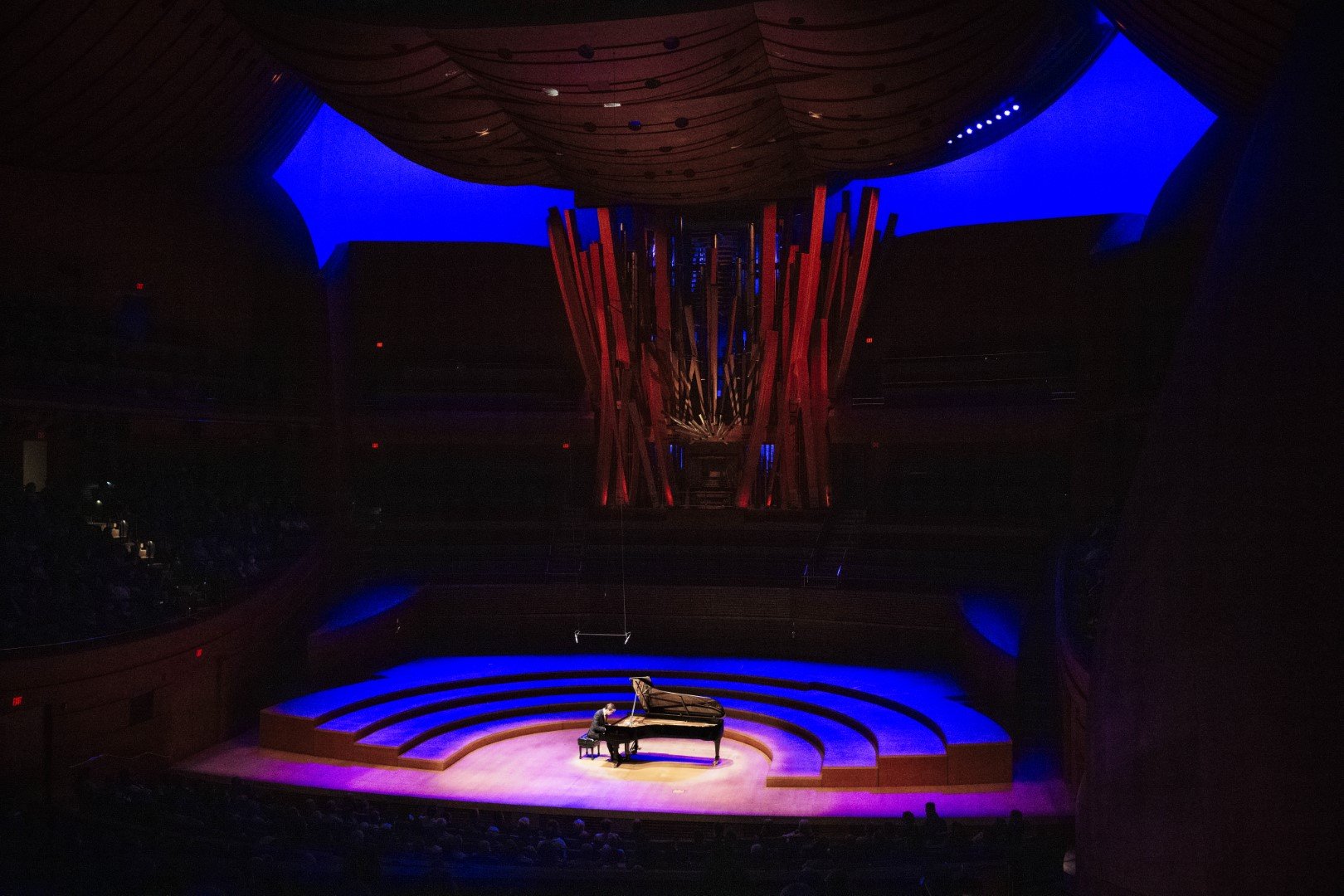
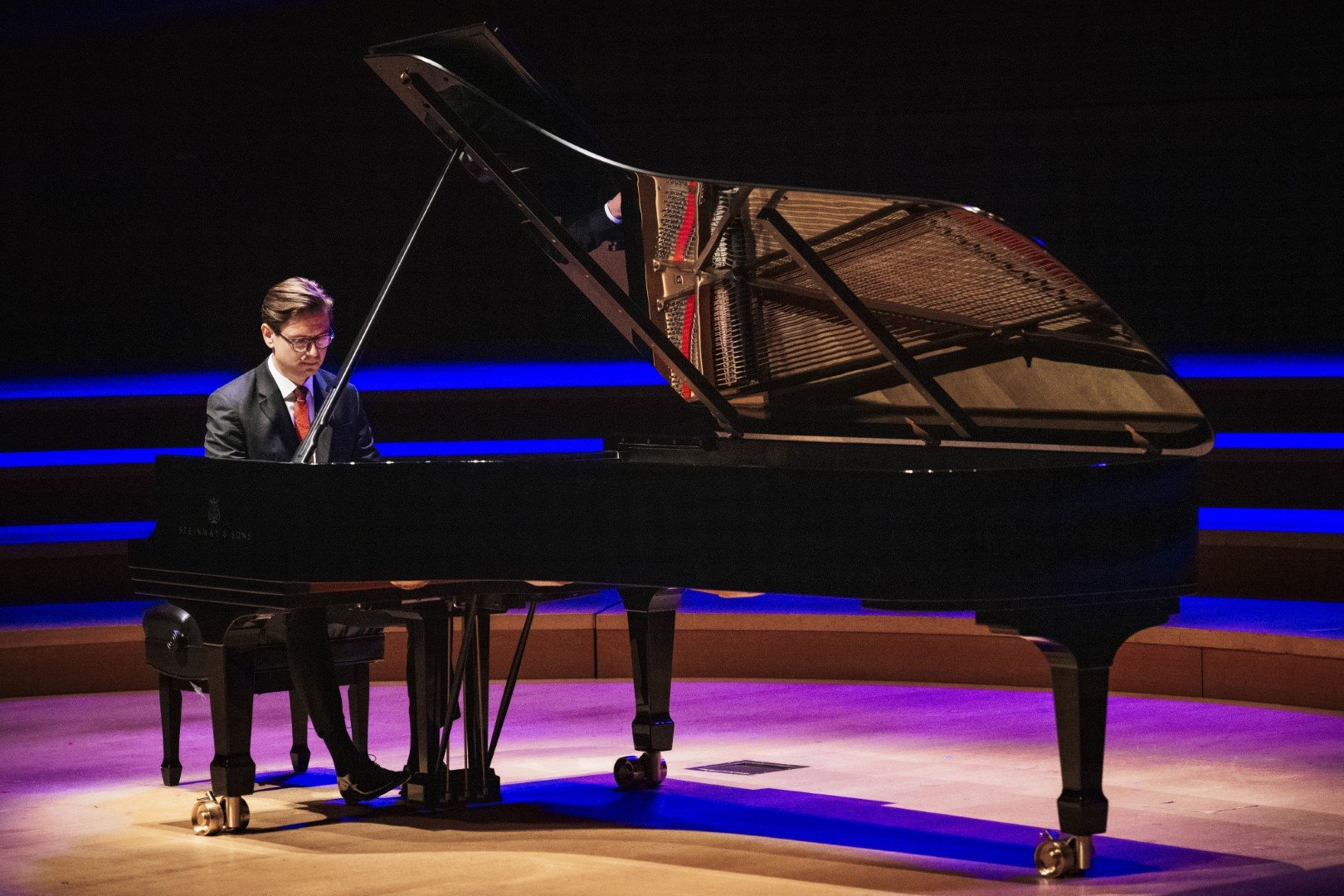
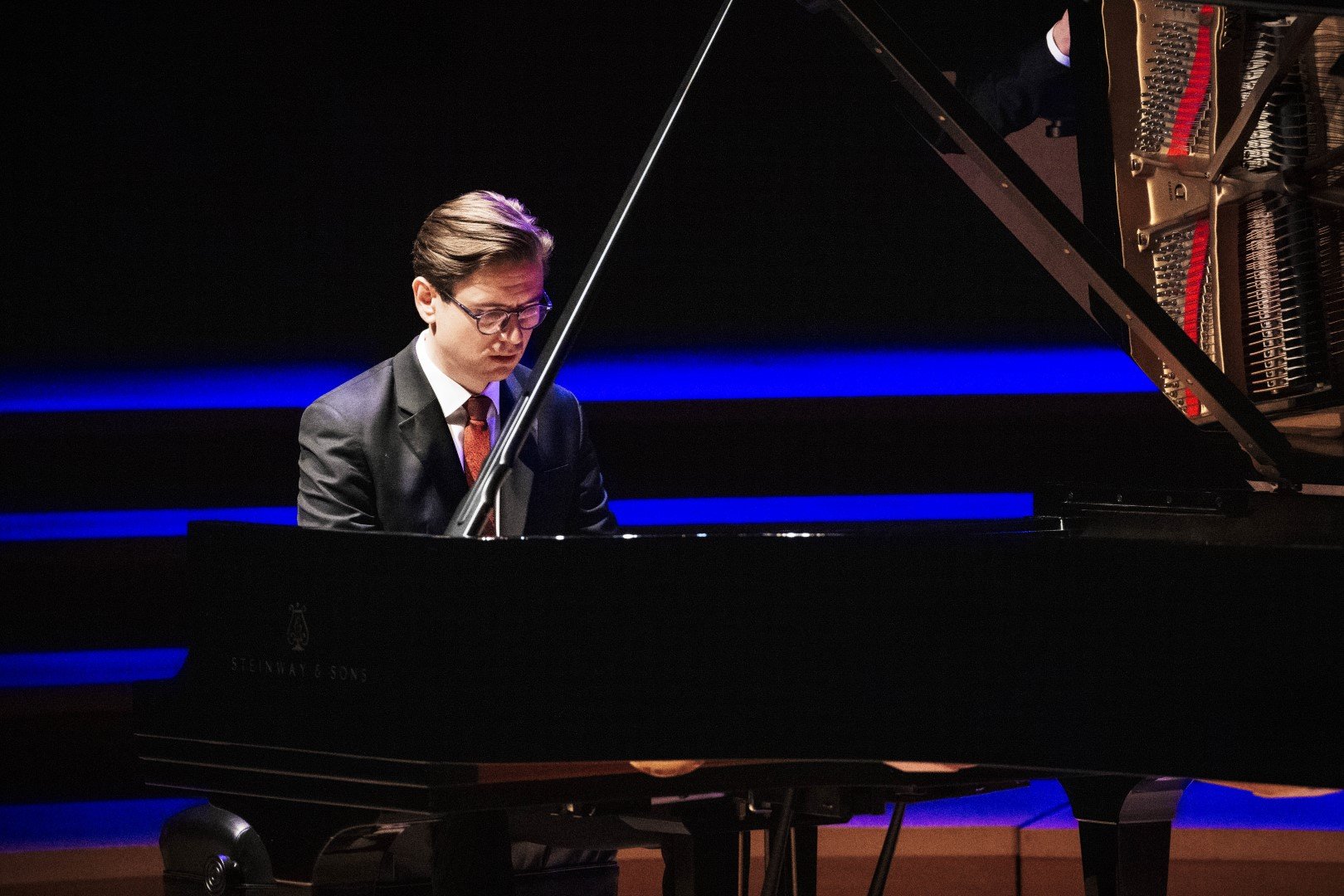
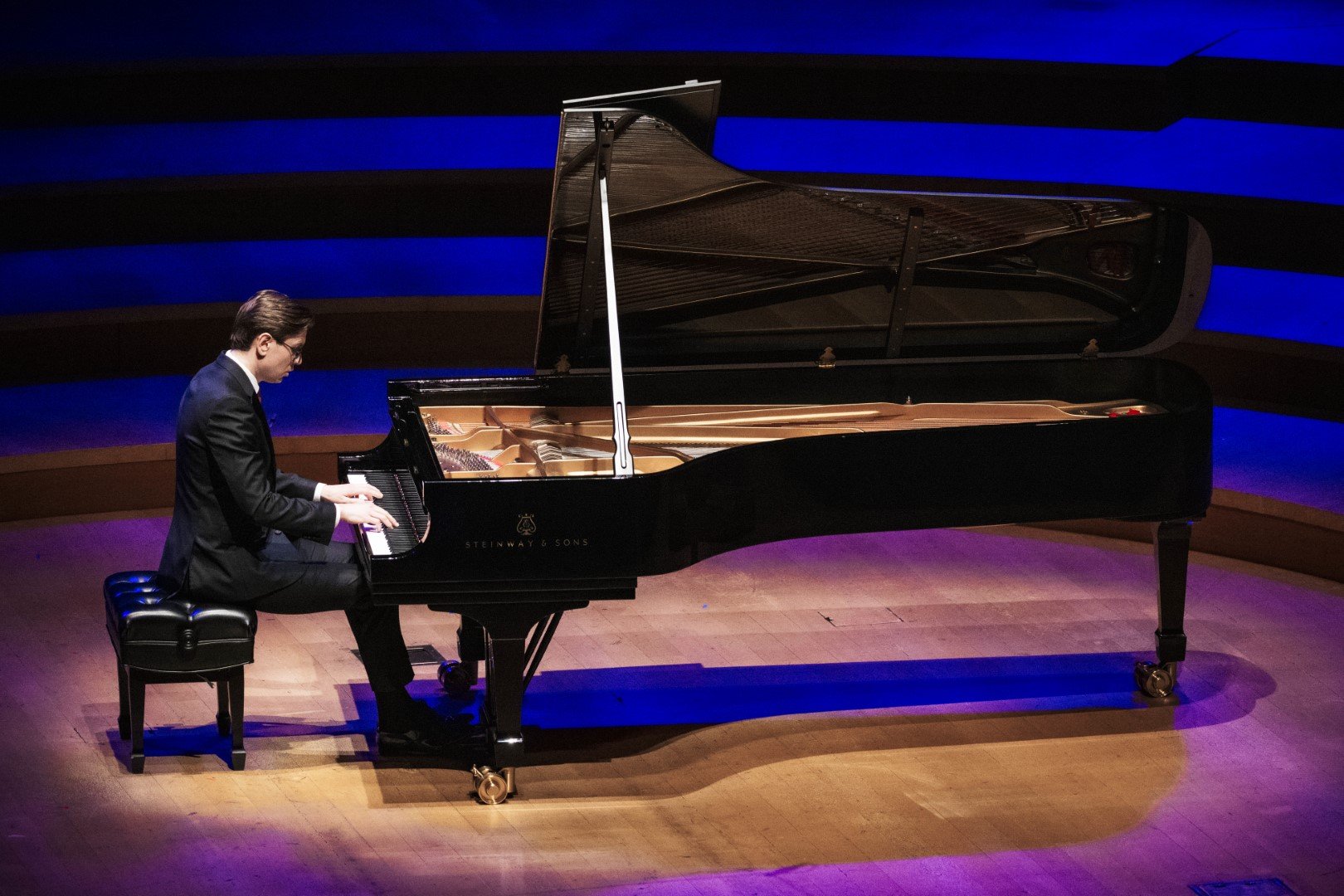
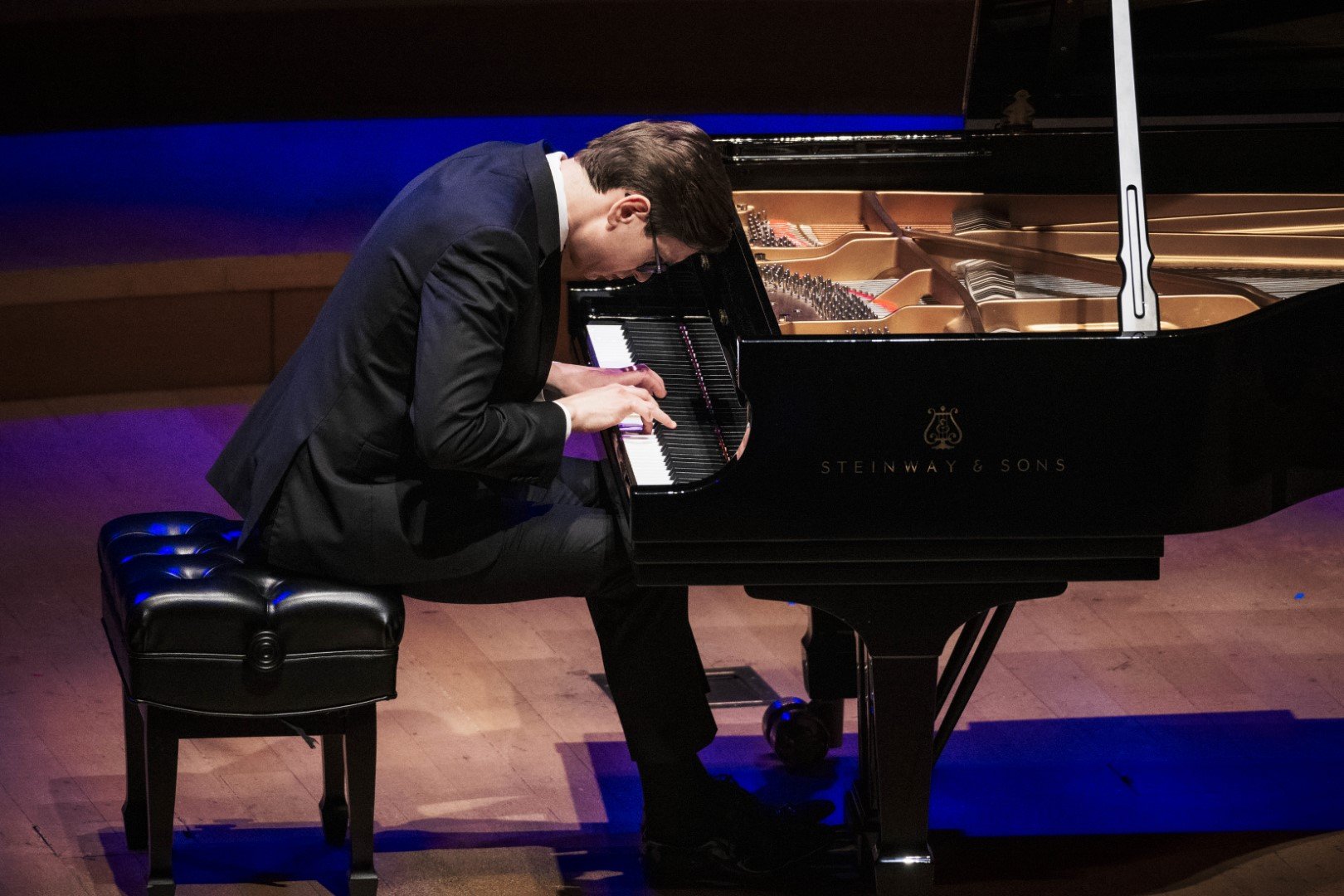
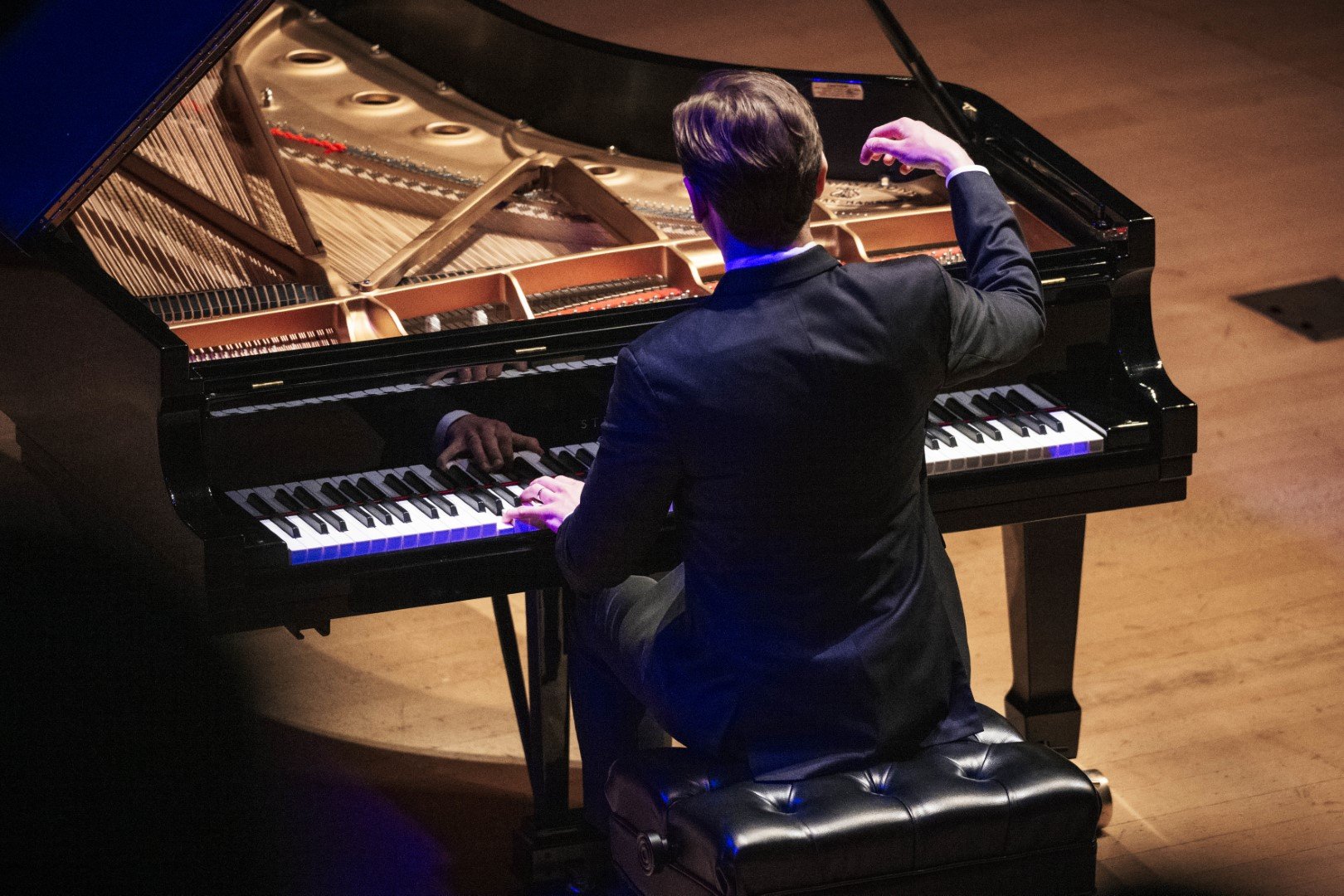
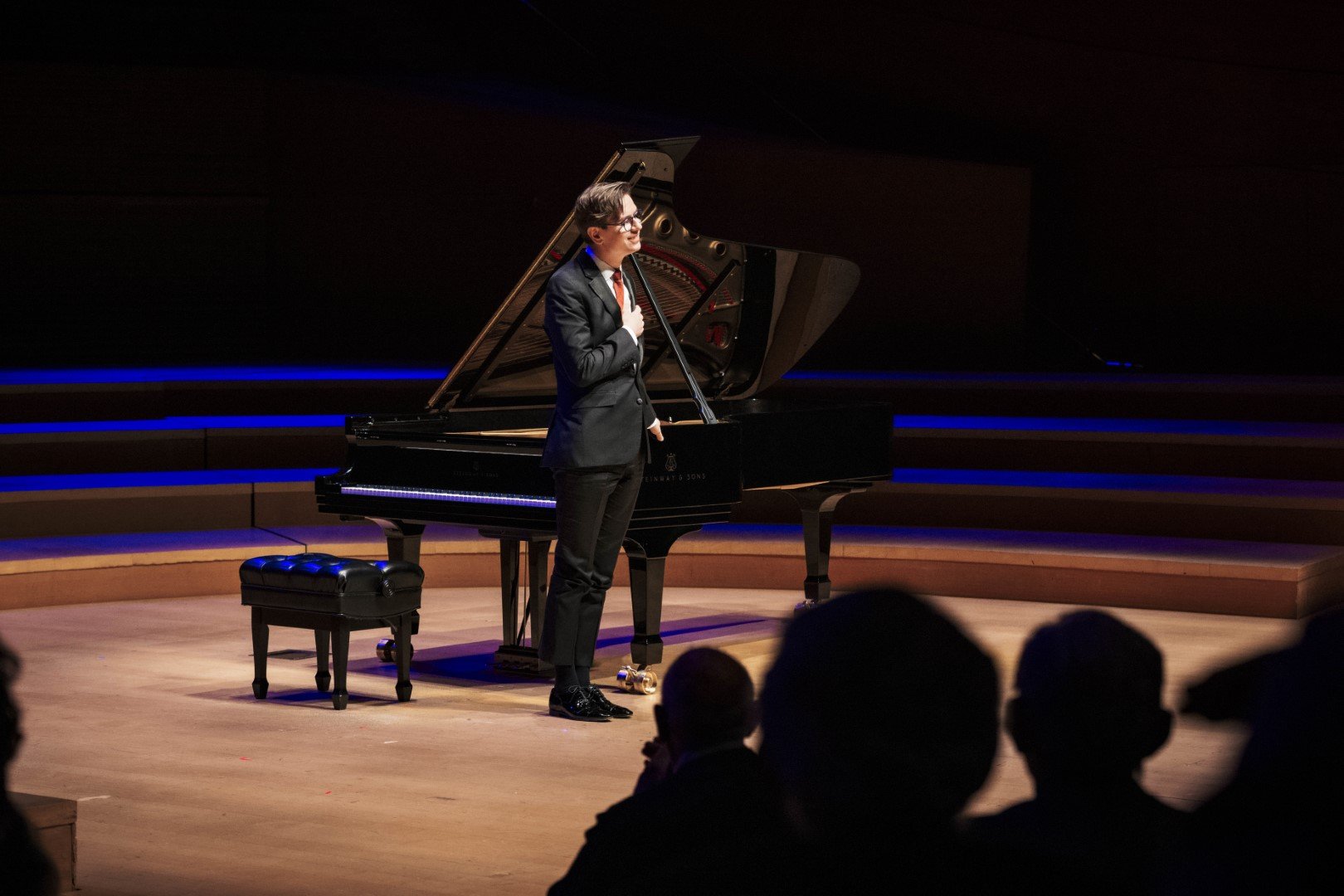
On May 1, the cerebral (and celebrated) Icelandic pianist Víkingur Ólafsson returned to Disney Hall to play the Goldberg Variations and to promote his new recording. By now we all know Ólafsson is an ultra-serious musician, unsmiling in his publicity shots, and unsmiling in his music-making, whether playing Mozart in this hall last year, or Bach last evening. No, his Goldberg would not be the first choice recommendation for a novice, but one of many good ‘alternate versions’, offering up a wayward but cogent view of the work on the modern piano. The Steinway chosen by Mr. Ólafsson for the recital was a beautiful instrument, with crisp, rounded tones at all speeds and dynamic levels. As the music started, one thing soon became clear: the pianist favored extreme contrast of tempi and dynamics, often at the expense of lyricism and architectural integrity; all the canons were played fast and furiously, fortissimo and prestissimo, crashing head-on into the next group of canons and toccatas. The visceral excitement was undeniable, but the trick eventually grew old in the second half (15th variation onward) when, in the 20th, 23rd, 26th and 27th variations, the double-manual harpsichord effects that sound convincing in Mr. Ólafsson’s recording studio became a hopeless puddle of sounds in the diffused acoustics of the Disney Hall. (Listen to the same tracks played by Angela Hewitt for the clarity of melodic line in a storm of fury and passion.) The slower pieces, in contrast, were dragged out to unseemly lengths – the ‘Dark Pearl’ 25th variation clocked in at a glacial 10 minutes (versus Perahia’s 7 minutes). It was a Goldberg of extremes, but to Mr. Ólafsson’s credit, he somehow, improbably, against all odds, made the abrupt transitions sound organic and satisfying (not self-indulgent and cringe-worthy like Lang Lang’s). When he arrived at the final destination of the aria da capo, there was a true sense of occasion that greeted the return of a wayward wanderer.
Coming up: Dudamel and pianist Maria João Pires (5/2), Yuja Wang (5/12)
Truman C. Wang is Editor-in-Chief of Classical Voice, whose articles have appeared in the Pasadena Star-News, San Gabriel Valley Tribune, other Southern California publications, as well as the Hawaiian Chinese Daily. He studied Integrative Biology and Music at U.C. Berkeley.

